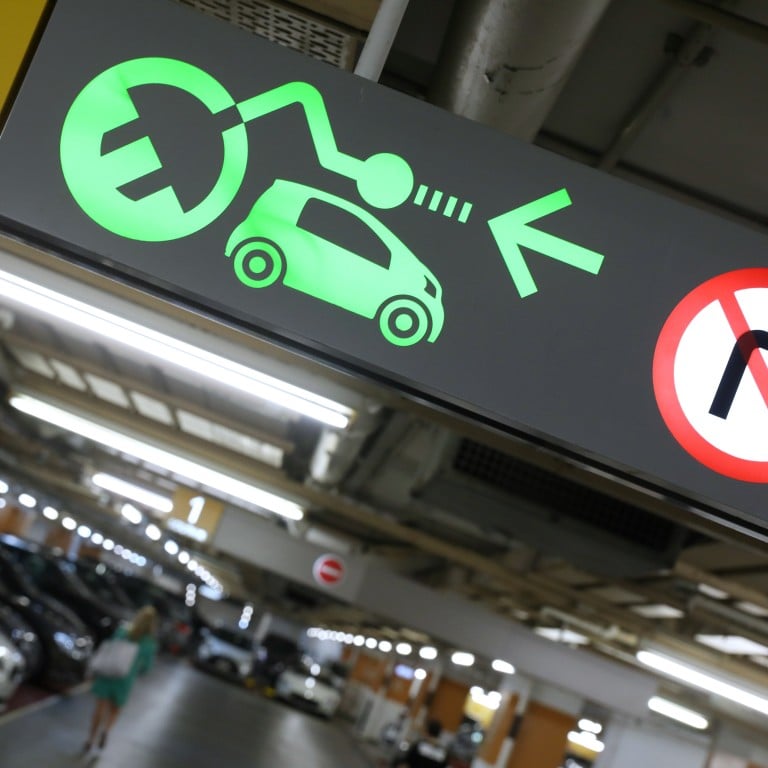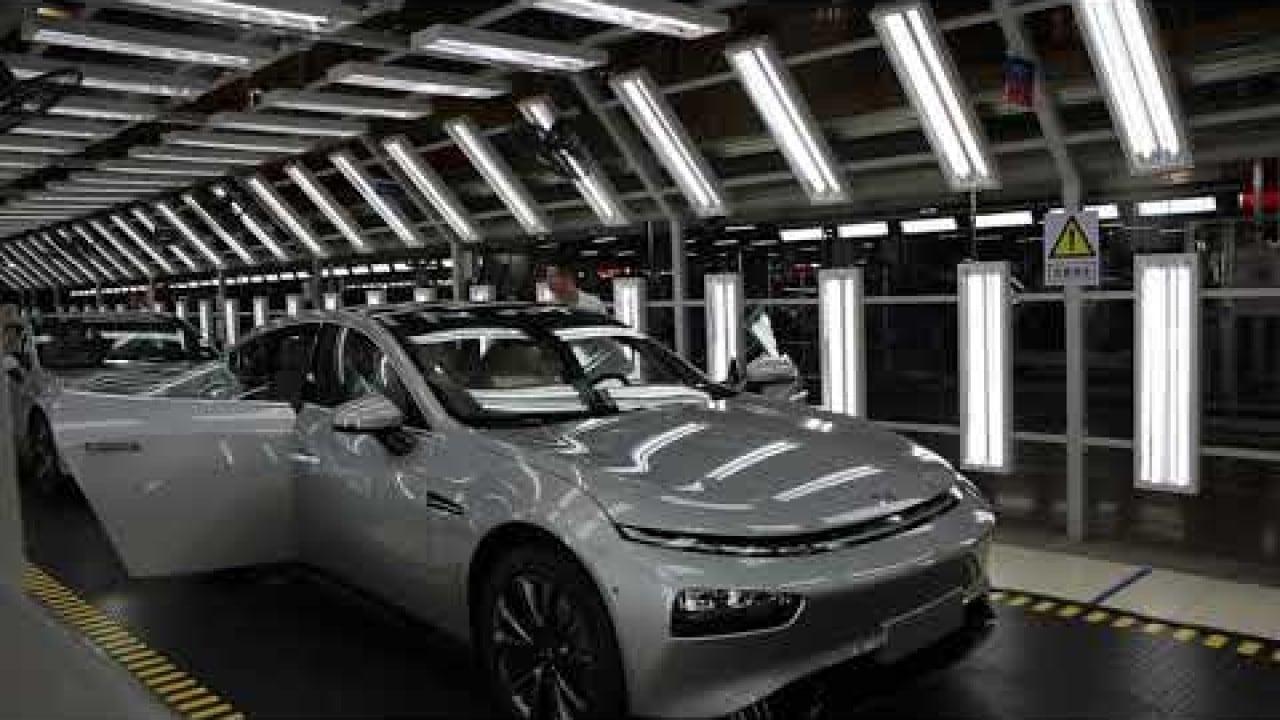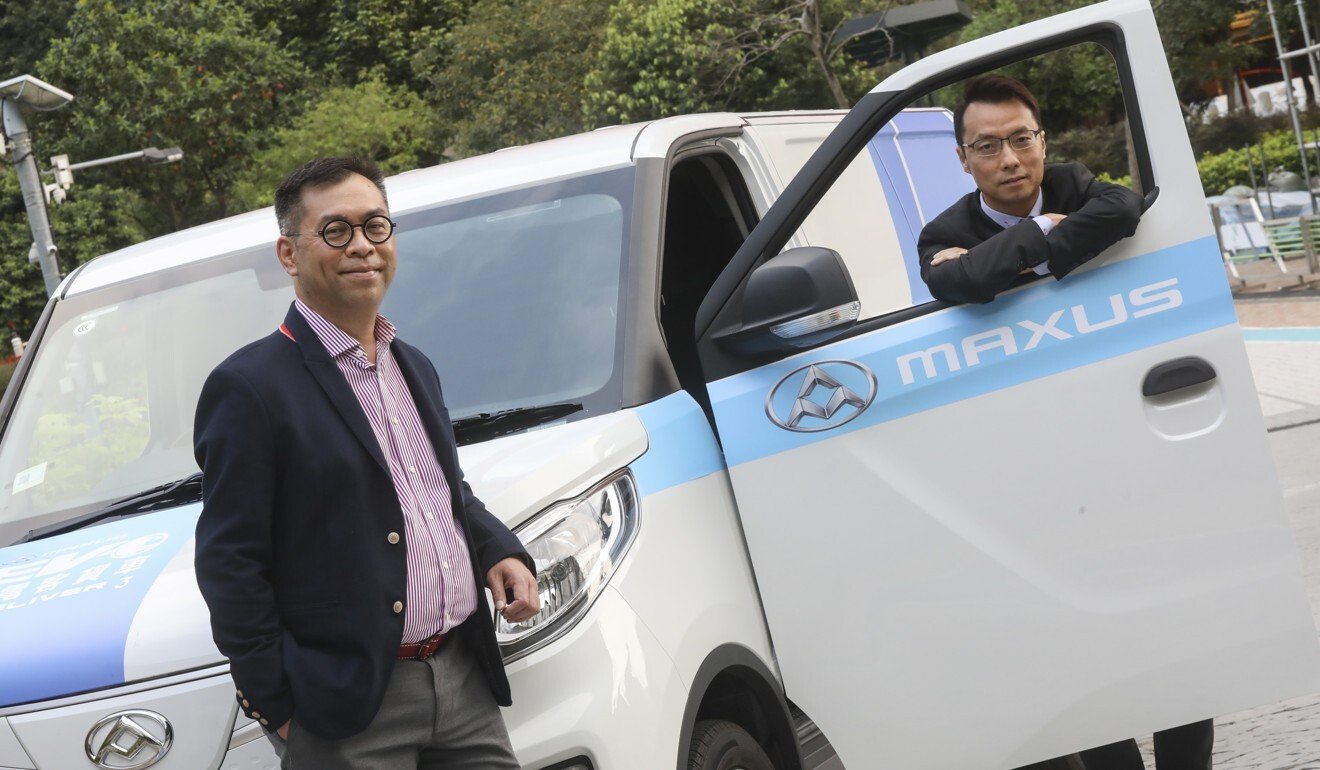
Hong Kong needs to plan for green future and help city’s mechanics learn how to repair electric vehicles, says biggest distributor
- Managing director of Inchcape Greater China says government should not only focus on increasing charging facilities for electric vehicles
- Ted Lau says supporting measures also needed as he issues warning about lack of skilled technicians to repair them
With Hong Kong moving towards full adoption of more environmentally friendly transport by 2035, the city’s biggest motor vehicle distributor has issued a warning about the lack of skilled technicians to repair the growing number of electric cars.
In an interview with the Post, Ted Lau, managing director of Inchcape Greater China, said the government should not only focus on increasing charging facilities for e-cars, but also roll out other supporting measures, such as helping the city’s existing 8,000 mechanics transit to EVs.
“The government needs to set up a regulatory regime to train technicians for the repair and maintenance of EVs,” he said. “There should be a registration system to ensure that EV maintenance workers are all qualified to fix e-cars.”
He made the call as the government recently announced its target to phase out new purchases of petrol-powered private cars by 2035.

01:56
Inside Chinese electric vehicle maker Xpeng's factory in Zhaoqing city
The Environment Bureau was expected to unveil a road map for making that a reality this month, addressing issues including expanding the EV charging network, training of EV technical and maintenance workers, and formulating a scheme for dealing with old EV batteries.
The push to promote electric vehicles is part of Hong Kong’s broader goal of achieving carbon neutrality by 2050, an ambitious timeline that would put it 10 years ahead of mainland China. Over the past decade, the number of electric vehicles in Hong Kong has grown from just 184 to more than 18,500, and there are some 3,300 charging stations for electric cars across the city.
Alvin Lee, aftersales director of Inchcape Greater China and chairman of Service Managers Association Hong Kong, said the government should not neglect the technological upgrade for the city’s mechanics.

“Currently, EV owners in Hong Kong can only send their cars back to the dealers or their car makers for maintenance, while the traditional garages in Hong Kong are yet to be equipped with the technology or capability to provide service for EVs,” he said.
He urged the government to provide EV training and set up a registration system to require those dealing with EVs to get certain qualifications.
“The EV technology is very different from that of traditional cars,” he said. “My biggest fear is that without proper training, e-car maintenance workers might easily run into accidents or even fatalities.
“This is the loophole for lacking a regulatory system to supervise EV maintenance workers. This would also create a pathway for them to move up the career ladder.”
Tesla thrashes Chinese rivals with threefold jump in Model Y sales
Both Lau and Lee also called for the creation of a regulation system to ensure proper disposal and recycling of old EV batteries.
“We need a separate piece of legislation to deal with the proper disposal and recycling of EV batteries to accommodate the surge of e-cars in Hong Kong, including stipulating the responsibilities of car owners,” Lau said.
“Without this regulation, I am afraid that some people might casually dump the retired batteries into landfills and cause pollution problems.”

Lee said EV batteries were now mainly exported overseas where the batteries would be broken down for their raw materials.
Lau called on the government to consider other options apart from EVs, pointing to the use of hydrogen cars in Japan.
However, Locky Law, director of education at ChargedHK, a non-profit group that promotes electric vehicle use, said the government should only focus on full adoption of EVs, as they were the most energy-efficient and environmentally friendly.
“Unless there is a green technology better than EVs otherwise there is no need for considering other types of green vehicles,” he said.
As to the disposal and recycling of EV batteries, he said the government needed to consult different car makers to see what was the best way to regulate the practice.
Supply issues to sustain EV metals prices at elevated levels by 2025
A spokesman for the Environmental Protection Department said the government was studying the feasibility and viable options of introducing a mandatory registration scheme for vehicle mechanics and vehicle maintenance workshops.
“We will continue to maintain close relationships with the vehicle maintenance trade and other relevant stakeholders in this regard,” he said.
He pointed out that there were courses for interested parties to be equipped with EV knowledge, including relevant courses in universities and training programmes in Vocational Training Council.
The Environment Bureau would announce further details regarding the disposal and recycling of old EV batteries later this month, he said

